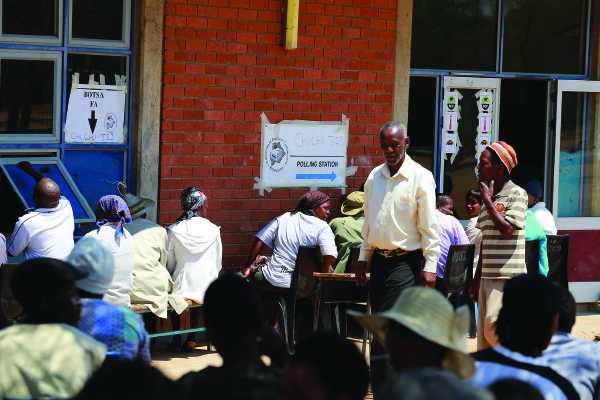Less than 900, 000 register for 2019 General Elections
Less than 900 000 people have registered for this year’s general elections in spite of efforts by stakeholders especially the Independent Electoral Commission (IEC) and political parties to mobilise at least 80 percent of the potential voters to register.
IEC Principal Public Relations Officer, Osupile Maroba is not satisfied with the figure. “We cannot really say we are happy with the figure,” said Maroba in an interview. Voter apathy is a concern to those who believe that representatives are under pressure to perform when they are elected by a large number of people.According to the Voter Apathy Report commissioned by the IEC and conducted by the Democracy Research Project (DRP) of the University of Botswana (UB) after the 1999 general elections, some of the respondents cited government corruption for their disillusionment with elections.
They were also not attracted to the opposition because the main opposition is underperforming hence not ready to form a government. The electorate who were interviewed also felt the opposition parties must unite. Some people do not vote because they lack political education. For example, an electorate may stay home because he feels that his vote does not matter. However, with some voter education the electorate will know that some wards or parliamentary seats have been decided by small margins. They could be casting the deciding vote!
Due to lack of political and civic education, some people do not vote because the person they voted for last time has not done them personal favours such as giving them a ride or even money. Voter apathy studies indicate that some people do not register to vote because of long queues and they hate waiting. In some jurisdictions, employers are required by law to give employees a break to register as well as to vote if they cannot partake in the process inside the hours of work.
Politicians are also accused of lacking the sophistication to market themselves properly. For example, they are accused of, among other things, using abusive language at rallies, addressing rallies in the English language, distorting facts and generally engaging in petty as opposed to issue based politics. When the campaign becomes rather vitriolic, people become cynical. Some voters are on record saying that they did
not see the need to register because some of their leaders were controversial and lacking in integrity. Strict election procedures such as the cut-off date for registration may deny some people the opportunity to register and vote. There have been suggestions that online registration should be allowed. It has also been suggested that people should be able to register for the election even on election-day when the hype is at its highest level. The chairman of Botswana Democratic Party (BDP) Communications Committee, Kagelelo Kentse, explained that as a stakeholder, the BDP mobilised voters to register for elections through rallies.
“We deployed vehicles to take people to the registration centres. We also did social media campaigns,” he said. UDC Head of Communications, Moeti Mohwasa, who feels there should be a second supplementary registration because of the low numbers of those who have registered, said that the UDC did its best to get people to register for the elections.
“For example, when our aircraft was down, our president was traversing the country to mobilise them to register. The other difficulty is that we do not have enough resources to get people to polling stations to register. “That is partly why there should be political funding,” said Mohwasa who emphasised the importance of a high turn-up of voters. “A good turn-up gives the winner legitimacy,” he added.






